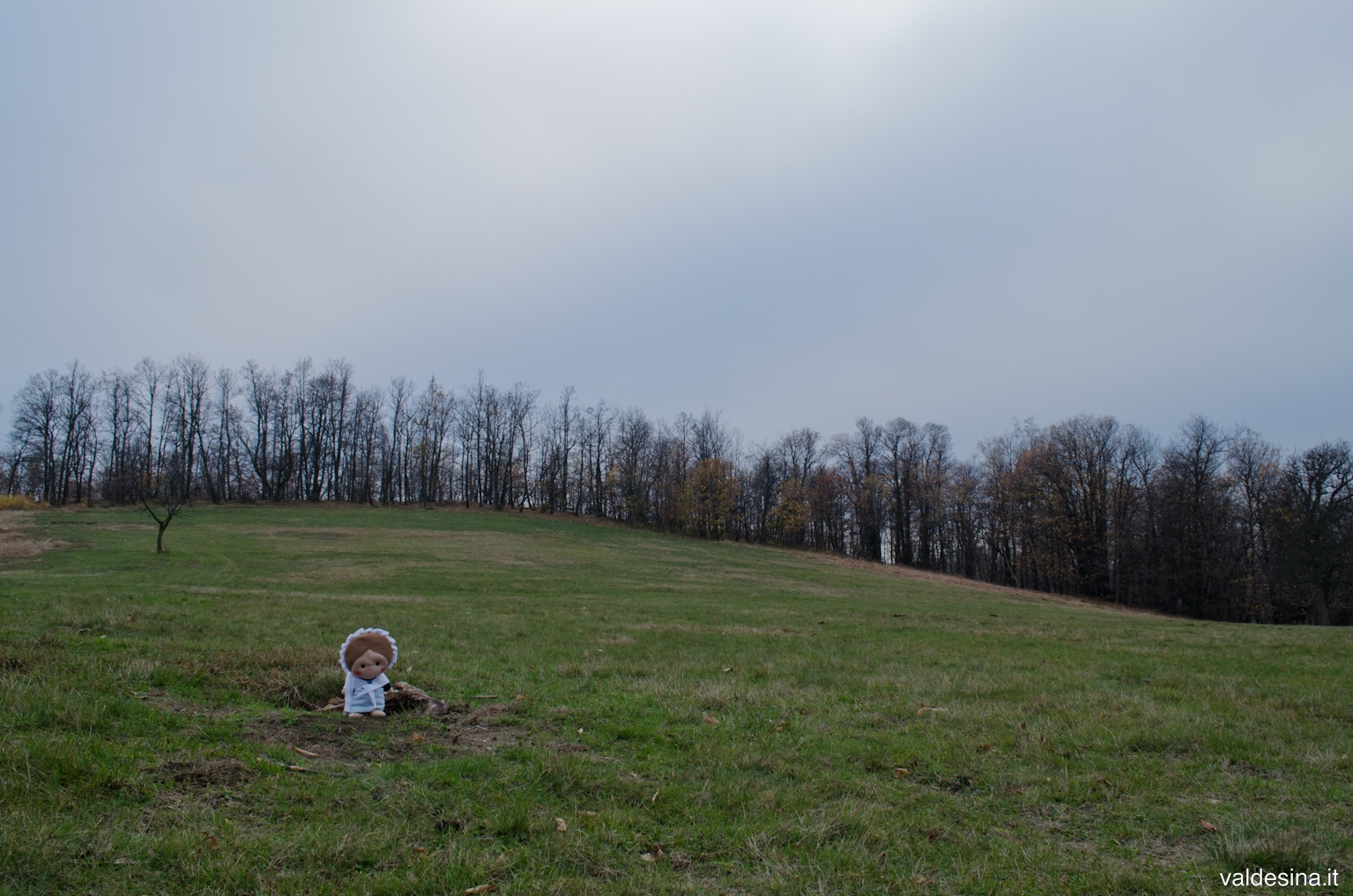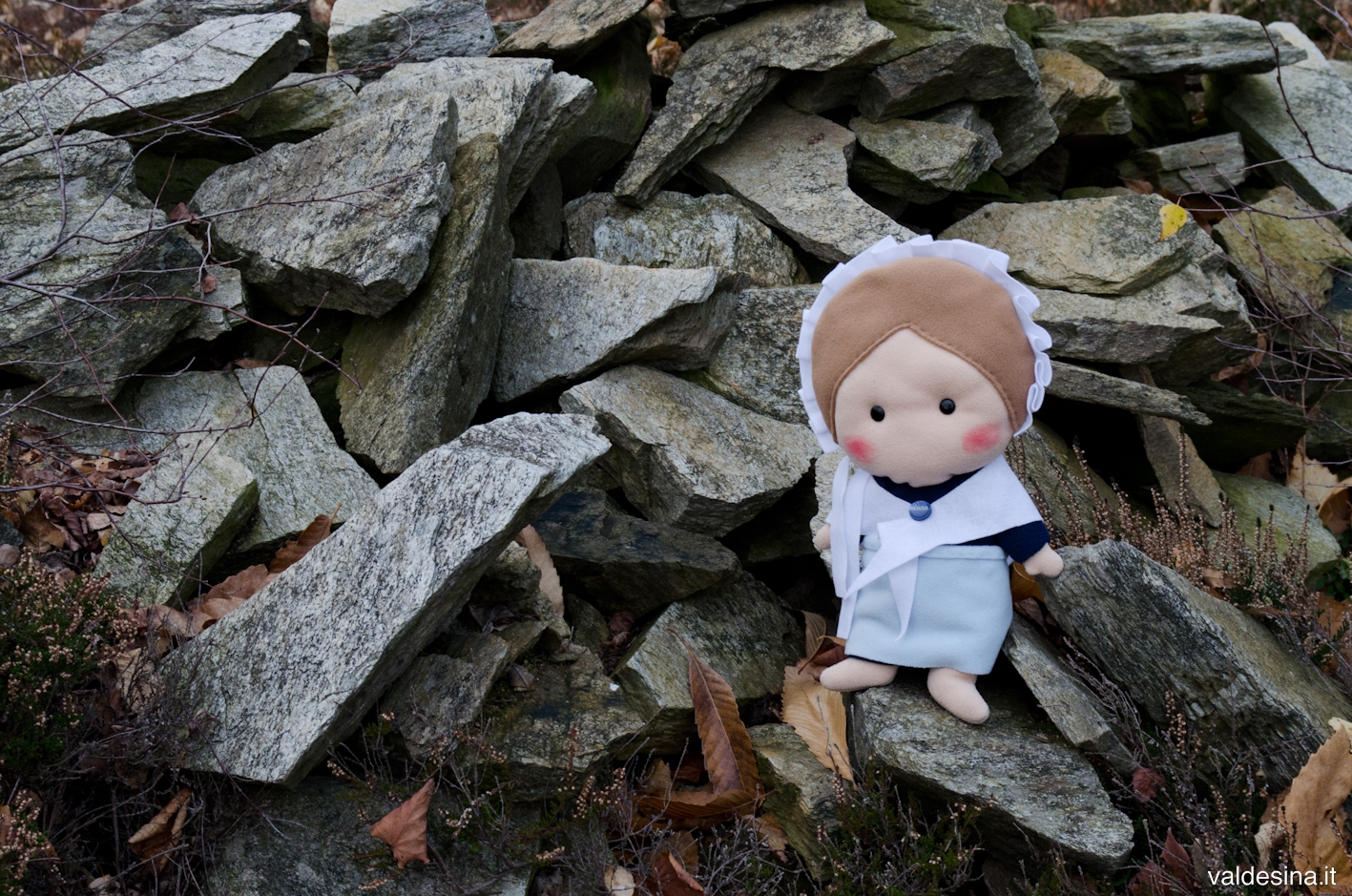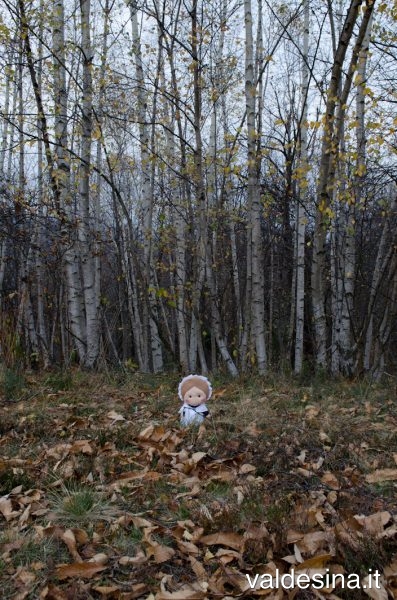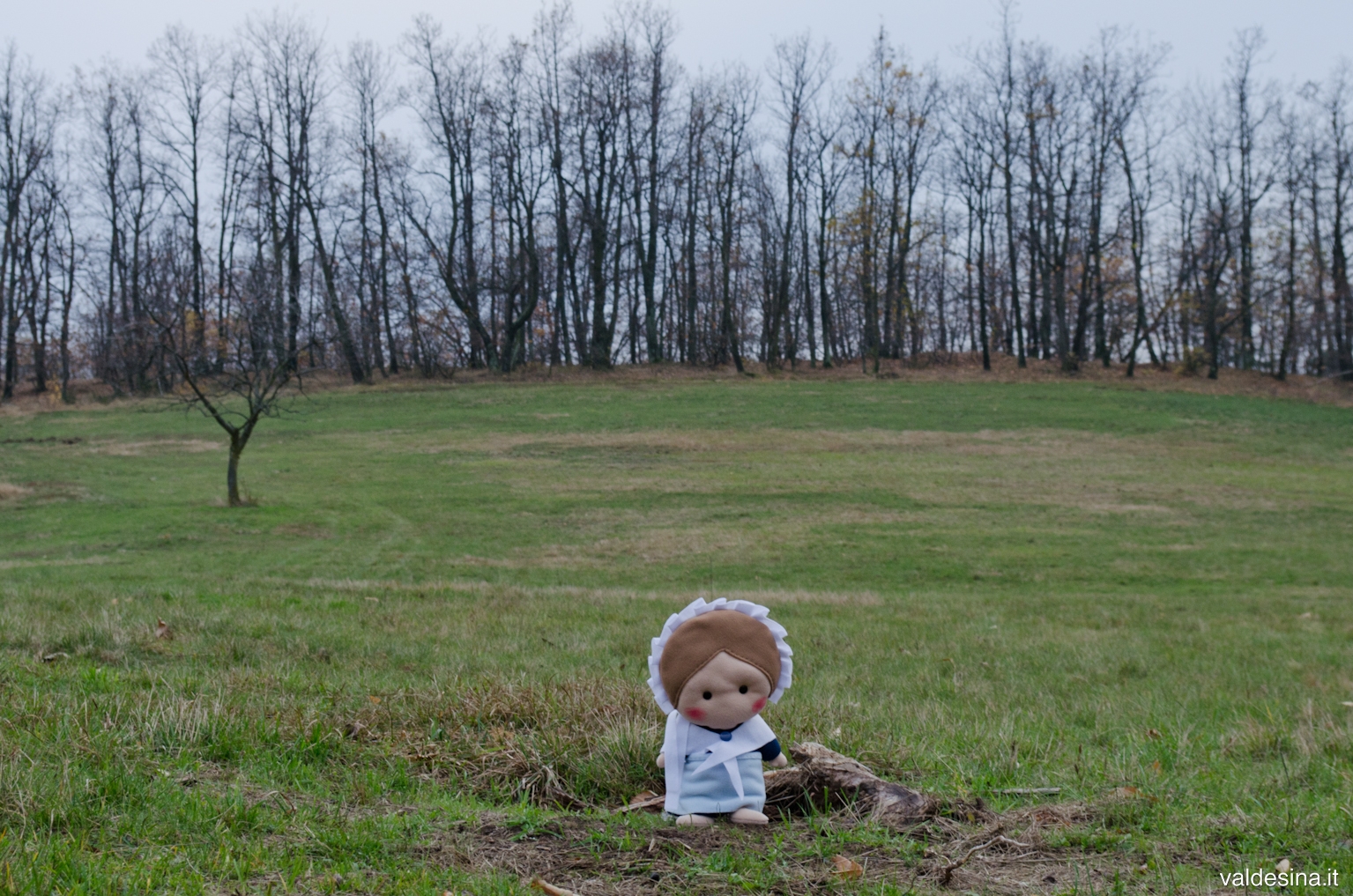Here I am, on time for the weekly appointment with a new story for you.
This legend is set in Prarostino, a little town in the province of Torino, between Pellice and Chisone valleys, but, alas, we don’t know the exact place. I like to imagine that everything is set in this lawn, in a region called Piani, just next to a grove, in which, I’m sure, the fantine, the fairies, are hidden.

A young and very poor man from Prarostino used to work as a plowman in a local farm. His work was very strenuous, but he never complained for this.
A nice and sunny day, when he was working in a field because it was haymaking season, saw next to a tree a beautiful girl, who was making hay with a shining rake. She was blonde and slender, with a pale skin and golden hair which slipped in soft curlies ’till the feet. When he saw her, he immediately understood that a beauty like that could not belong to this world: she was a fantina!
The man tried to reach her in four leaps and see better that wonderful creature, but she, in a twinkling, disappeared.
He got back to his work, but in some minutes the fantina came back to help him. This time the man didn’t try to get closer, but stayed in place and watched her from afar.
In the following days, the peasant could admire the good company of his magical helper, who even dared to tease him with some tricks. Unfortunately, the haymaking season ended, and the fantina, sadly, gave her pale and beautiful hand to the young man, and said him farewell. In a moment of impulse, the peasant held her hand, and, thrilled and red like a tomato, told her: «Don’t go away, I’m in love with you!». She, dismayed by that sudden revelation, replied to him: «I love you too, but if we’d stay together it would come a cropper. A fairy can’t marry a man!». Listened to that words, the poor fond man started to cry, and asked to the fantina to ponder over. The fairy replied to him, and told «I love you too much to go away, but if I change my mind you have to promise me that at any cost you will apostrophe me as a “snake”».
The man, full of joy, burst out laughing. «What an insanity! My neighbours are right when they say that i every fairy there’s a glimmer of lunacy!». In fact it was a strange request, but the man decided to accept it.

And so, time passed, and before the arrival of the winter, they married. They were happy like no one, and the magical creature revealed as a thoughtful wife, with simple tastes and a very working person. Their happyness grew further when she gave birth to a beautiful baby, and a few time after to a wonderful boy. The children looked incredibly similar to the mother, so blond, slender and elegant.
Often the peasant got curious about the life of his wife, and many times asked her informations about the place she was from. But time passed, and her refined tastes she masked in order to adapt to the simple life of her husband came out with the education of the children. In fact, she used to dress them with precious white tunics, talked to them only in French, and they weren’t even able to understand the local patois, who the peasant spoke. She was a very protective mother, and banned the cildren to play with the town rascals, who in her opinion used to amuse in an uncouth way. Very soon, the neighbours started to be annoyed by this disdainful behaviours, and complained with the man.

Also the peasant was suffering for this behaviour, which made him feel put apart, and sometimes he had tried to criticize the way his wife was rising their children. Because of these reasons, although they were still strongly in love, a veil of sadness covered the family.
A bad day, the man was fooled by the people of the town, because, in their opinion, he let her wife to push him around. Back home, he was down in the dumps, and seeing that the children, as usual dressed in their shining tunics, were in the meadow to chase butterflies, he called his wife, and angrily told her «Go and call the children, they must help in the housework, they are slackers!»

You know, in the past it was normal for children to help in housework when they were very very young, and often they had to do hard things. The fantina got angry because of the tone, and, annoyed, answered to her husband: «You’re right, they’re different from you, they’re not vulgars!». At that point, the man, purple with rage, told her: «You’re just an evil snake!». Suddendly, just in front of his eyes, the woman disappeared. It was a loss of time to search for her, she had vanished, and this procured him a big pain. But there was something strange: unexpectedly, the children didn’t suffer for this, and also after many days of absence of the mother, they were always tidy, groomed and plumed as usual. This oddity arouse suspicions in the peasant, who discovered that the children went everyday to meet the mother, who lived in a crevice in a rock. The day after, the man went in the place indicated by the children, but at a first glance didn’t see anything. Howewer, looking harder he noticed a rolled snake, enjoying the morning sun. But this wasn’t a normal snake: its back was sprinkled with gemstones, which sparkled at every movement. When the snake felt that the peasant was approaching, it raised his head, and when it saw him, expressed astonishment and sorrow… Immediately, the man understood, and remembered the old promise.
But it was too late, and magically his wife had turned in a snake!
How to get here:
from San Secondo di Pinerolo take the route to Prarostino and follow along the Strada Provinciale 165 until you arrive at San Bartolomeo, the main region of the town. Don’t get into the hamlet, but take the steep road which goes towards the hill right after the cemetery (on the left) and the Freedom Lighthouse (on the right). Take Via Piani and at the first crossroad go to the left and go straight for 1,5 km.
Do you want to read the tale in Italian ?
